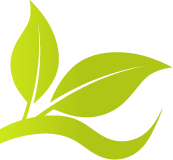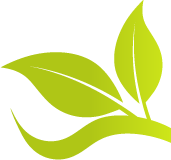Curriculum
The curriculum is all the planned experiences we provide for our pupils in order to develop an enjoyment of and commitment to learning. It includes not only the formal requirements of the National Curriculum and Early Years Foundation Stage but also recognises how much our children learn from routines, the extended school day and activities outside school. It is child centred building on pupils’ strengths, interests and experiences and develops their curiosity, creativity and capacity to learn. It includes the hidden curriculum of what children learn from the way they are expected to behave and how they see others and they themselves are treated.
By providing rich, relevant and varied contexts for our pupils to acquire, develop and apply a range of knowledge, skills and attitudes, the curriculum enables pupils to think creatively, solve problems and make a difference. It also develops their physical skills and encourages them to recognise the importance of pursuing a healthy lifestyle and keeping safe.
CURRICULUM STATEMENT
INTENT
Our teaching and learning aim to provide all children with a high-quality, inclusive and ambitious curriculum that enables them to know more and remember more over time. Learning is carefully sequenced so that knowledge builds cumulatively from Early Years through Key Stage 1. We have high expectations for all pupils, including those with SEND, and ensure that learning supports children to become confident, independent learners who are kind to others, brave in their learning and motivated to succeed.
IMPLEMENTATION
As a result of teaching that consistently builds on prior knowledge, pupils develop secure understanding and strong recall over time. Regular use of retrieval practice strengthens long-term memory and enables children to confidently revisit and apply previous learning. Clear identification of key knowledge and shared learning intentions ensure pupils understand what they are learning and why.
Explicit teaching of vocabulary, alongside clear modelling and carefully structured scaffolding, enables all pupils to access learning, use new language confidently and develop independence as support is gradually withdrawn. Planned retrieval activities embed learning securely and help pupils make meaningful connections across subjects.
By linking learning to pupils’ personal experiences and interests, teachers increase engagement, confidence and motivation. Misconceptions are identified and addressed promptly, ensuring pupils feel supported and included. As a result, children become confident, resilient learners who remember more, understand more and take pride in their learning.
IMPACT
As a result of high-quality teaching and learning at Shottermill Infant School:
-
Children develop secure knowledge and understanding across the curriculum.
-
Pupils use vocabulary confidently and accurately.
-
Learning is remembered over time and built upon.
-
Children demonstrate positive learning behaviours, resilience and independence.
-
Pupils feel proud of their achievements and roar with pride.
WHAT SUBJECTS WILL MY CHILD STUDY?
All pupils will study the following National Curriculum subjects and Early Years areas of learning.
Early Years Foundation Stage
There are seven areas of learning and development that shape educational programmes in early years settings. All areas of learning and development are important and inter-connected.
Three areas are particularly important for building a foundation for igniting children’s curiosity and enthusiasm for learning, forming relationships and thriving.
These are the prime areas:
- communication and language
- physical development
- personal, social and emotional development
Providers must also support children in four specific areas, through which the three prime areas are strengthened and applied.
The specific areas are:
- literacy
- mathematics
- understanding the world
- expressive arts and design
The Teachers will explain more about the EYFS curriculum at our induction meeting and the full curriculum documents can be viewed at www.gov.uk
Please follow the link to our Early Years page to find out more.
Key Stage 1 (Years 1 & 2)
At KS1 all children follow the National Curriculum and are taught the following subjects.
English, Maths, Science, Computing, Art, Design and Technology, Music, Geography, History, Physical Education.
Please follow the link to our progression grid page for more detail about each subject.
Please follow the link to our Year 1 and 2 page to find out more about what each year group is doing.
We provide opportunities for the children to take responsibility and grow into responsible students within our school.
In Year 2 children become playground buddies and assembly helpers. Year 1 and Year 2 pupils take turns to become part of the litter-busting team. All children get the chance to be register monitors and classroom helpers.
Collective Worship/Assemblies
All state schools are required to make provision for a daily act of collective worship which follows the requirements of the 1988 Education Reform Act. Collective Worship takes place in the daily assembly which is non-denominational and broadly Christian. Assemblies are special occasions when achievements are celebrated, values underlined and spiritual, moral, social and cultural development recognised. The daily act of collective worship is a time of togetherness and reflection on values of importance to the school community. This may be as a whole school, a year group or as a class. Children are enabled to think about the importance of the school values in their own lives and this helps them to make positive choices. Assemblies also develop children’s awareness of different cultures, religious beliefs, national days and global awareness days
VISITS
Throughout their school life pupils have many opportunities to enjoy visits and visitors which enhance the curriculum across most subjects. At Shottermill Infant School we place a high emphasis on using the local environment of village and parks as a practical aid to our learning programme. In addition, the children are exposed to theatre workshops, art workshops, museums, outdoor centres and parks.
Remote Education
Should the need arise for remote education, work will be set for the children via The Google Classroom platform.
























